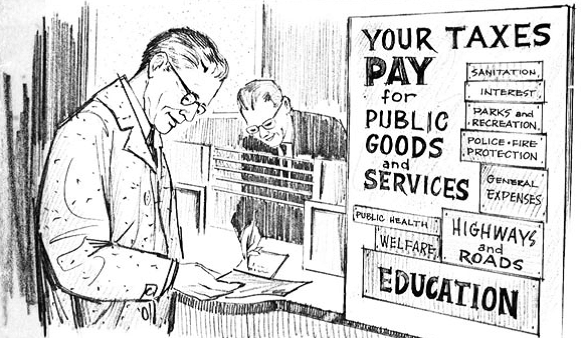Scott Louser: State Should Study Taking Over Property Taxes

Property taxes weigh heavily on the minds of many in North Dakota. As legislators, we often are tasked with finding solutions to the concerns of our citizens. While the state does not assess the property directly, levy the mills, collect the tax or spend the revenue, it is heavily involved in property tax buydowns. Reforms to the system are difficult and many ideas are being debated. After spending time over the last two years considering a true reform idea, I introduced HCR 3021 last week in the House Finance and Tax Committee.
At initial reading, this bill would study the concept of the state paying the current property tax bill levied by all political subdivisions, essentially leaving the property owner with a bill of $0. While this sounds similar to an effort three years ago, this is not a constitutional amendment and has some specific reform ideas behind it. While a blog post may not provide enough of a format to give all details, the theory is as follows:
[mks_pullquote align=”right” width=”300″ size=”24″ bg_color=”#000000″ txt_color=”#ffffff”]”At initial reading, this bill would study the concept of the state paying the current property tax bill levied by all political subdivisions, essentially leaving the property owner with a bill of $0.”[/mks_pullquote]
Any increase to a local budget beyond provided for by the state would require a special assessment…but not against the size or value of the property. The special assessment would be a defined dollar amount over a defined number of years and every residential property would pay the same dollar amount if the proposal were to pass. Commercial property would need to be treated slightly different as the local gas station should be treated the same as the shopping center, perhaps based on square footage or footprint. This would all but eliminate the need for assessments and would certainly eliminate the confusing mills, abatements and exemptions. The local entity would need to determine how many properties in their area are residential, commercial, industrial, farm and ranch land, etc. and how the allocation of a special assessment would apply. A vote of the people to levy a special assessment for a proposal would need to pass, either by simple or super majority.
The theory behind this idea is a “fee for service” as provided by vote. An example would be if a school district wanted to build a new elementary school and there was not sufficient funds in the state provided appropriation, the school board would put to a vote for all to consider adding a special assessment to properties. That amount could look something like $200 per year for 7 years for all residential properties. A passage of the vote means a new school gets built, failure means no new school.
This proposal has many questions. How much of an appropriation would be required to make this happen? Is the concept sustainable? What would be the implications of other taxes in lieu of property tax? What are the implications of current special assessments, escrow payments with lenders, requirements of non-profit and currently exempt organizations and current bonding practices? Is there federal funding impacted by the potential change in taxation? Does this proposal give a disproportionate amount of influence to the energy industry or the state? There are numerous more questions to consider.
In the end, I believe this concept is worthy of a detailed study. It may prove that the idea is not sustainable, which should take the idea of property tax elimination off the table. It may also prove this concept continues to provide local control by city and county governments as well as school and park boards. The voters will have a new voice on the taxation of their property. The system would no longer be able to pick winners and losers and the owner versus renter discussion would all but cease. In this concept, the state would be providing for a full K-12 education and would no longer be debating ‘buydowns’. Local elected officials would no longer be pressured to raise budgets while reducing taxes. Those same officials would be accountable to voters by putting forward for consideration by the voters projects that are worthy and deemed necessary in the community. While Willow City and Watford City have differing needs, but would be treated the same in this single line item in the state’s budget. Energy impacted and rapid growth communities would still be eligible to apply for additional funding via the current grant system in place within North Dakota.
To be sure, there are many unanswered questions and unknown implications. Legislators are sent to Bismarck to find solutions to problems, no matter the complexity or impact. While this idea may not come to fruition or become law, I’m convinced it warrants an in-depth look once and for all considering the true reform proposed on the back end for the property owners voice.




